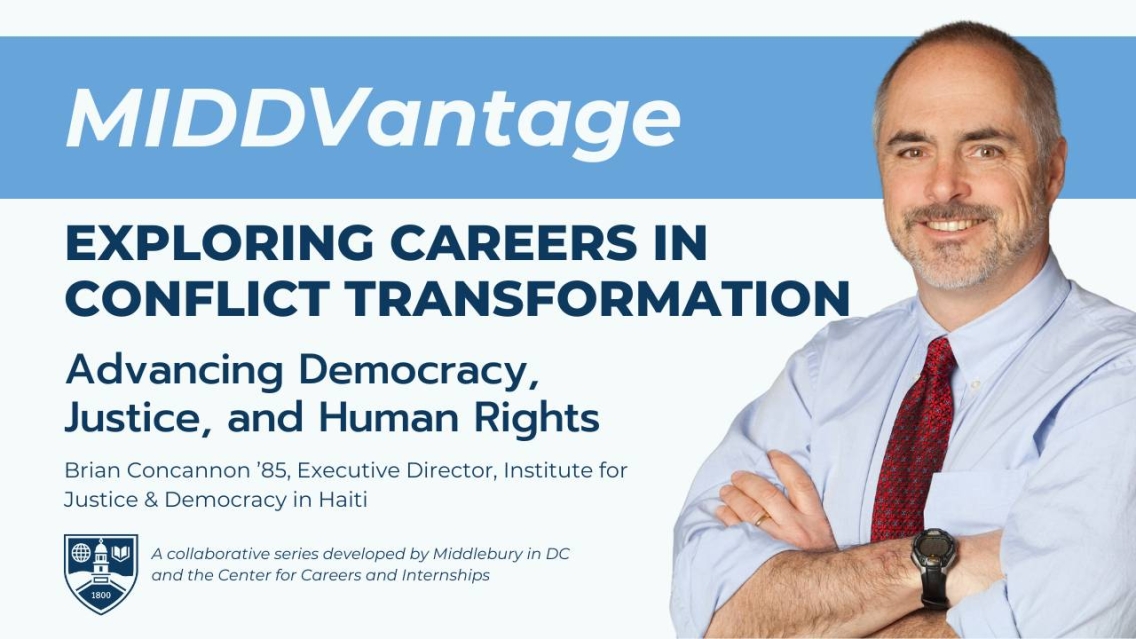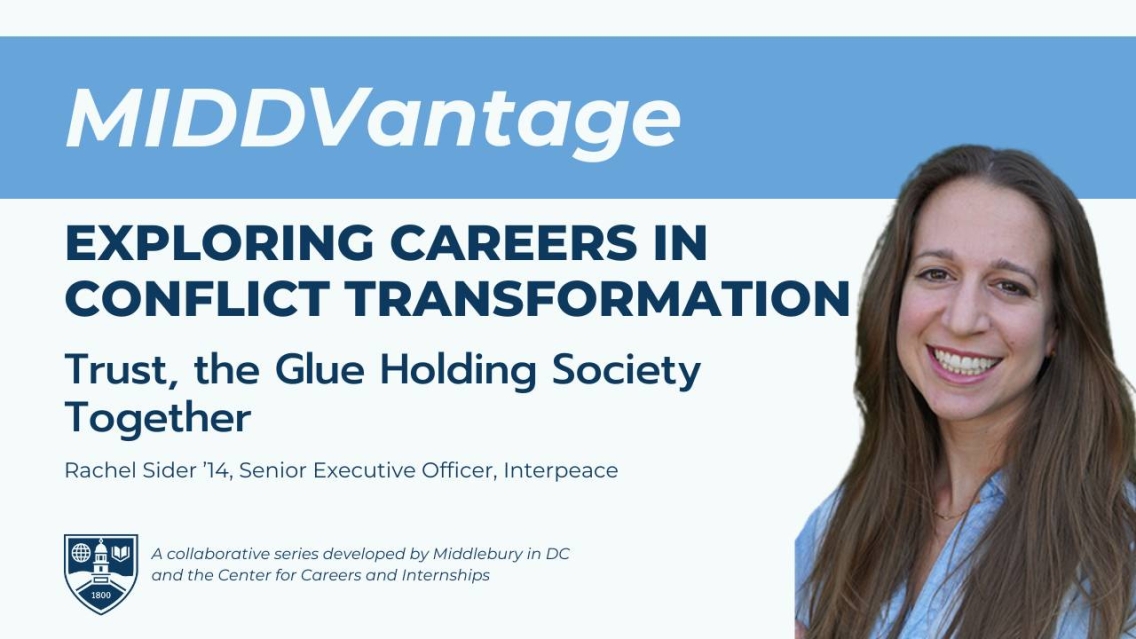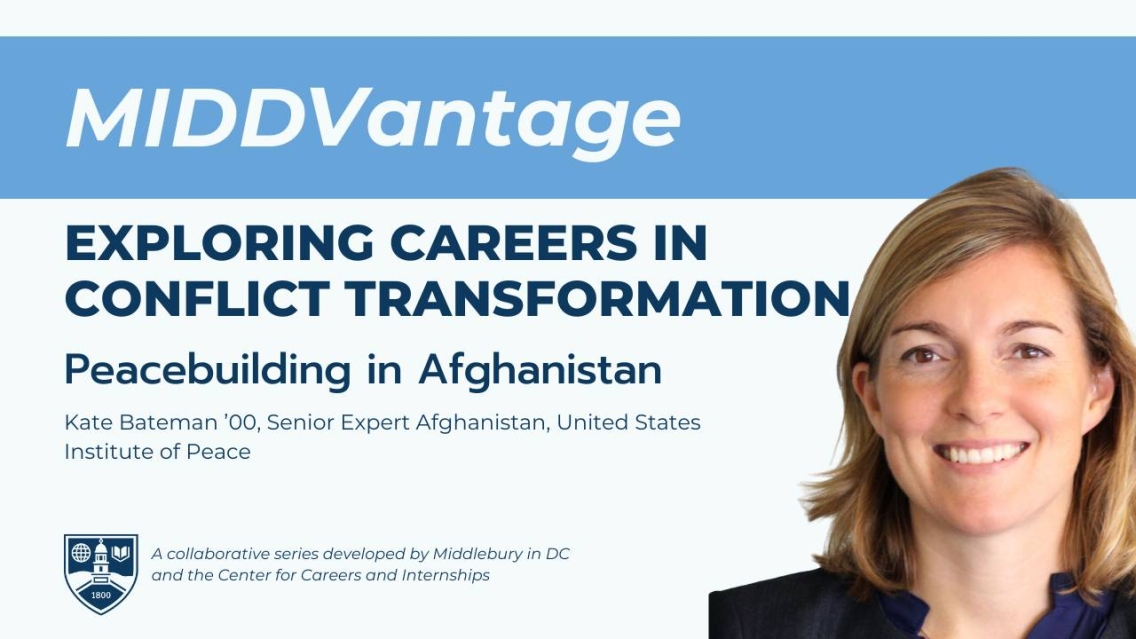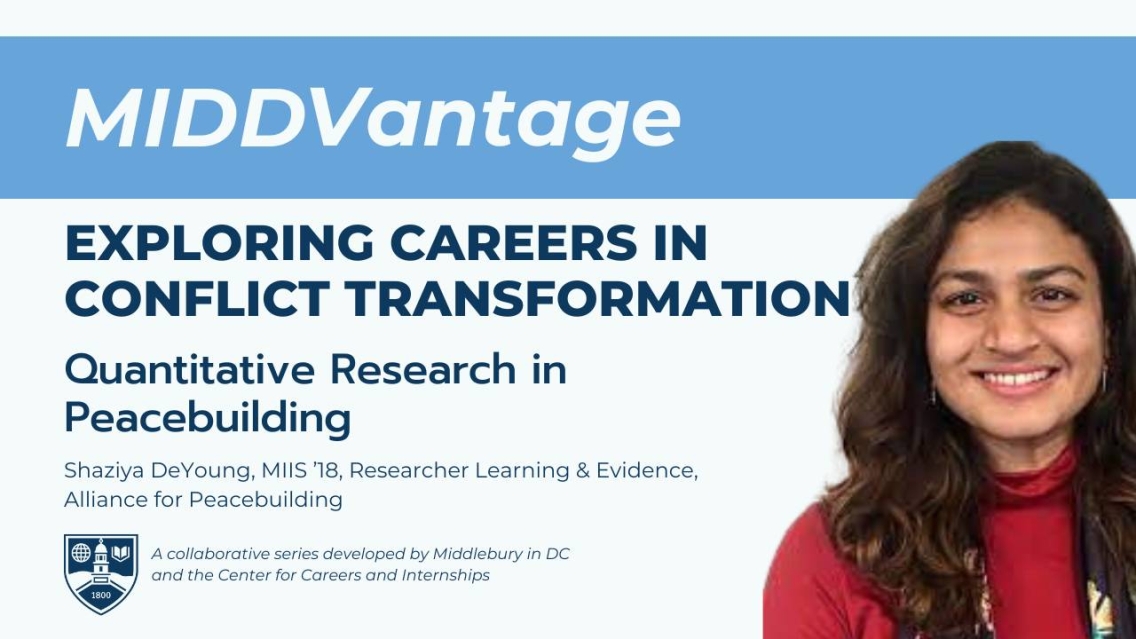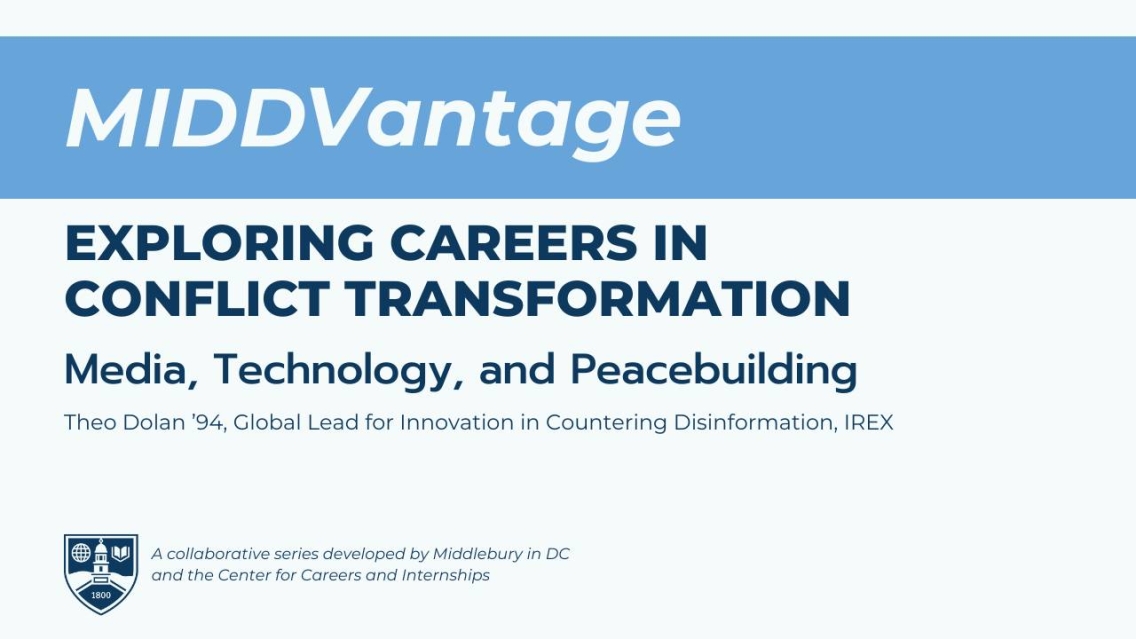Exploring Careers in Conflict Transformation
The Exploring Careers in Conflict Transformation video series, a collaboration between the Center for Careers and Internships and Middlebury in DC, offers insights from professionals who transform conflict into constructive change worldwide. Each interview features an experienced practitioner, highlighting real-world roles and pathways for students interested in peacebuilding and social justice careers.
For the full playlist, visit our YouTube channel, where you will find all episodes and more series in our MIDDVantage collection.
Episode 5: Advancing Democracy, Justice, and Human Rights
- Guest: Brian Concannon ’85, Executive Director, Institute for Justice & Democracy in Haiti
- Interviewer: Laura Rivera ‘23
- Overview: Brian (History, French), a human rights lawyer, has dedicated his career to advocating for justice in Haiti and beyond. He shares how his experiences in international law, from prosecuting high-profile cases to battling systemic issues, shape his current work.
- Watch Time: 32 minutes
Episode 4: Trust, the Glue Holding Society Together
- Guest: Rachel Sider ’14, Senior Executive Officer, Interpeace
- Interviewer: Teyonce Allison ‘25
- Overview: Rachel’s work spans humanitarian efforts in Syria, Myanmar, and beyond. She discusses how impactful policy shapes peace and protection in conflict zones and her unique journey from Middlebury to influencing global aid.
- Watch Time: 31 minutes
Episode 3: Peacebuilding in Afghanistan
- Guest: Kate Bateman ’00, Senior Expert Afghanistan, United States Institute of Peace
- Interviewer: Kate Goodman ‘24
- Overview: Kate’s career in peacebuilding includes roles at SIGAR and the U.S. Department of State. She delves into Afghanistan’s challenges and her research on stabilization in conflict-affected regions.
- Watch Time: 28 minutes
Episode 2: Quantitative Research in Peacebuilding
- Guest: Shaziya DeYoung, MIIS ’18, Researcher Learning & Evidence, Alliance for Peacebuilding
- Interviewer: Quinn Pidgeon ‘24
- Overview: Shaziya shares insights from her work with the Learning and Evidence team at the Alliance for Peacebuilding, where she focuses on building data-driven frameworks to support peacebuilding programs worldwide
- Watch Time: 18 minutes
Episode 1: Media, Technology, and Peacebuilding
- Guest: Theo Dolan ’94, Global Lead for Innovation in Countering Disinformation, IREX
- Interviewer: Shawn Adams ‘24
- Overview: With nearly two decades in media and peacebuilding, Theo discusses his work on IREX’s Learn to Discern programs, which counter disinformation and promote digital resilience across 20+ countries.
- Watch Time: 25 minutes


